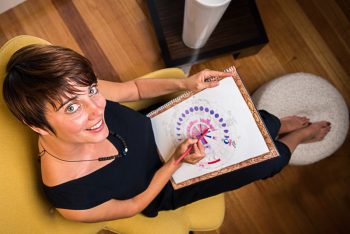March 22nd, 2018
By Tanja Taljaard and Azriel Re’Shel
Guest writers for Wake Up World
Is Sisterhood the Most Powerful Force for Women’s Health?
“Female friendships are just a hop to our sisterhood, and sisterhood can be a very powerful force.” – Jane Fonda
In ancient times women shared a lot more than they do today. They shared care of their babies, gathered food and cooked together. The women and the children shared their lives intimately, and were a source of strength and comfort to each other on a daily basis. Traditions like the Red Tent, where women came together during menstruation to be together, often with synchronised cycles, were a beautiful time for nurturing, sharing women’s business and keeping each other resilient and happy.
Today, women are a lot more isolated in their own homes and lives and more separate from each other. The opportunities for coming together are much more limited and the time spent together in this way greatly reduced. Because of this women miss the beautiful healing and nourishment that comes from being with other.
Creating a Cycle of Nourishment
Women are at the centre of family life, the pillars of a family, providing care for children and often the wider community. Other women fill the emotional gaps in the intimate partnerships women have. They strengthen these relationships, as a support and assurance that one person cannot be everything to you. Being with other women helps you to be a better mother, and the moral support, physical, emotional and mental support and stimulation create a beautiful harmonious environment for children to thrive.
Women are natural nurturers and empathic givers. It is vital for them to receive and be nourished as continual giving out ends in depletion, an increasingly common health problem. Women instinctively know how to nourish each other, and just being with each other is restorative.
The Power of Female Friendship
The true benefits of friendship are immeasurable. Friends make our lives better and studies show that friendship has a bigger impact on our physical and psychological wellbeing than family relationships [1]
Women share a special bond; they bare their souls to each other, support and encourage one another. The author Louise Bernikow said: Female friendships that work are relationships in which women help each other to belong to themselves.
The power of female friendships has also revealed some of its secrets to science. Researchers have found that the hormone oxytocin is, for women especially, the panacea of friendship and, by extension, health.
How Friendships Reduce Stress
A landmark study has found that women respond to stress differently than men. This fact has significant health implications. When people experience stress, the fight or flight response is triggered and releases hormones such as cortisol. Oxytocin – a hormone studied for its role in childbirth and bonding – is another hormone that is secreted by both men and women in response to stress. In women, it buffers the fight or flight response and encourages them to protect and nurture their children and to gather with other women.

Women instinctively know how to nourish each other.
Drs Laura Klein and Shelley Taylor refer to it as the “tend and befriend” pattern [2], and it happens with not only humans, but also the females of many species. When we actually engage in tending or befriending, even more oxytocin is released, further countering stress and calming us down. Until fairly recently many research studies on stress focused on males, Taylor said. “Women were largely excluded in stress research because many researchers believed that monthly fluctuations in hormones created stress responses that varied too widely to be considered statistically valid.”
Men produce high levels of testosterone when they’re under stress, and according to Dr Klein, it reduces the calming effects of oxytocin. They are therefore more likely to deal with stress with aggression (fight) or withdrawal (flight). A woman on the other hand, produces estrogen that enhances the effects of oxytocin and compels them to seek social support.
Aggression and withdrawal take a physiological toll, whereas friendship brings comfort that diminish the effects of stress. “This difference in seeking social support during stressful periods is the principal way men and women differ in their response to stress, and one of the most basic differences in men’s and women’s behaviour,” Dr Taylor said. This difference alone contributes to the gender difference in longevity.
A 2006 breast cancer study found that women without close friends were four times as likely to die from the disease as women with 10 or more friends. And notably, proximity and the amount of contact with a friend weren’t associated with survival. Just having friends was protective. [3]
Sisterhood
Jane Fonda, activist and actress says: “Friendship between women is different than friendship between men. We talk about different things. We delve deep. We go under, even if we haven’t seen each other for years. There are hormones that are released from women to other women that are healthy and do away with the stress hormones. It’s my women friends that keep starch in my spine and without them, I don’t know where I would be. We have to just hang together and help each other.”
Fonda and her close friend Lily Tomlin did a TED talk on the importance of female friendships, and likened women’s friendships to a renewable source of power:
Female friendships are just a hop to our sisterhood, and sisterhood can be a very powerful force, to give the world … the things that humans desperately need.
Article references:
[1] www.nytimes.com/2009/04/21/health/21well.html?_r=0
[2] www.anapsid.org/cnd/gender/tendfend.html
[3] www.nytimes.com/2009/04/21/health/21well.html?_r=0
This article courtesy of upliftconnect.com
The 13 Moons Calendar
For the past 15 years, Sh’ana Shean and Kaagi Valentine have been on a mission to help women reconnect with the inner wisdom of their bodies, leading groups of women through 13 months of ritual – the 13 Moons Blood Mysteries. The 13 Moons program guides women through an exploration of the journey of womanhood, from their memory of their first entry into menstruation through to what it means to be a woman in the world today. This journey culminates in a Moon Quest, where women spend 3 days alone on the land with just the Moon and themselves.
Through this journey, participants use the 13 Moons Menstrual Calendar, which has evolved over the years into the amazing and beautiful tool that is today – full of original text, songs and artwork. Spending 10 minutes a day, it helps women to connect with themselves and map their energetic journey through womanhood. For the modern woman at any phase of her life, this calendar is a powerful tool to help chart the rhythm and cycle of your body, and reconnect with the wisdom and power within.
If you would like to learn more or purchase a calendar, visit Facebook.com/13MoonsBloodMysteries, or click here to support Sh’ana and Kaagi’s crowdfunding campaign to reconnect women to their inner knowing through menstrual charting.
Sh’ana and Kaggi represent a potent community of women who bleed, birth and breastfeed together, that laugh and cry, that find comfort in each other’s bodies, hearts and wombs; that return to the innate knowing of Sisterhood, not separation.
Visit www.facebook.com/13MoonsBloodMysteries to connect with them, or to learn more.

If you've ever found value in our articles, we'd greatly appreciate your support by purchasing Mindful Meditation Techniques for Kids - A Practical Guide for Adults to Empower Kids with the Gift of Inner Peace and Resilience for Life.
In the spirit of mindfulness, we encourage you to choose the paperback version. Delve into its pages away from screen glare and notifications, allowing yourself to fully immerse in the transformative practices within. The physical book enriches the learning process and serves as a tangible commitment to mindfulness, easily shared among family and friends.
Over the past few years, Wake Up World has faced significant online censorship, impacting our financial ability to stay online. Instead of soliciting donations, we're exploring win-win solutions with our readers to remain financially viable. Moving into book publishing, we hope to secure ongoing funds to continue our mission. With over 8,500 articles published in the past 13 years, we are committed to keeping our content free and accessible to everyone, without resorting to a paywall.








